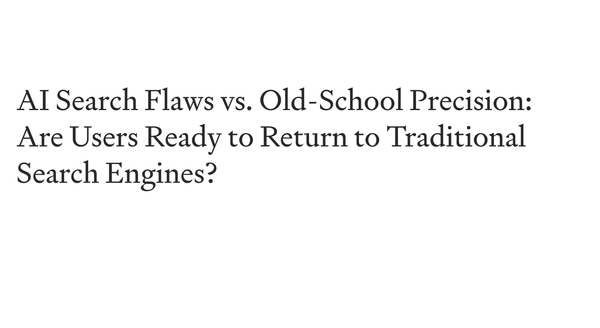Google Unveils TxGemma: A Bold Leap into AI-Driven Drug Discovery
Table of Content
In a move that could redefine how we approach medicine, Google has stepped up to the plate with an announcement that is as ambitious as it is hopeful. At a recent healthtech conference in Boston, Karen DeSallo, Google’s Chief Health Officer, revealed plans to release TxGemma—a collection of open-source AI models designed specifically for drug discovery. This isn’t just another tech buzzword-laden press release; this feels like the beginning of something transformative.

The Big Picture: Why Does It Matter?
Let’s start by acknowledging the elephant in the room—drug development is notoriously slow and expensive. From concept to approval, creating new therapies can take over a decade and cost billions. And even then, there are no guarantees. For every successful medication on pharmacy shelves, countless others have failed during clinical trials, leaving researchers scratching their heads (and emptying their wallets).
Enter TxGemma. These AI models aren’t your run-of-the-mill algorithms—they’re built to understand both regular text and complex therapeutic entities like molecules, chemicals, and proteins. In simpler terms? They’re not just reading scientific papers; they’re decoding the language of biology itself. Researchers will be able to ask these models questions about potential treatments, such as predicting safety levels or effectiveness before moving into costly lab experiments.
Imagine being able to test thousands—or even millions—of compounds virtually, narrowing down possibilities faster than ever before. That’s what TxGemma promises: a way to cut through the noise and focus resources where they matter most.
Collaboration Over Competition
One of the most exciting aspects of this initiative? Google isn’t keeping it all under wraps. Instead, they’re releasing TxGemma through their Health AI Developer Foundations program later this month, making it available to the broader research community. By opening up access, Google hopes to foster collaboration among scientists, startups, and pharmaceutical giants alike.
Think about it: when you bring together diverse minds from different corners of the globe, innovation happens. Whether it’s tweaking existing models or building entirely new tools on top of them, the possibilities seem endless. As DeSalvo put it, “We’re working with the wider research community to find new ways to make [drug] development more efficient.” Translation? Let’s solve these problems together.
And let’s not forget—this isn’t Google’s first rodeo in the world of AI-powered healthcare. Remember AlphaFold? When DeepMind unveiled its groundbreaking protein structure prediction tool back in 2020, it was hailed as nothing short of revolutionary. Suddenly, tasks that once took years could be accomplished in minutes. Fast forward to today, and Isomorphic Labs—a spinout of DeepMind—is already partnering with big names like Eli Lilly and Novartis to design novel drugs using AI.

The Reality Check: Challenges Ahead
But here’s the thing: while the promise of AI in drug discovery is undeniable, so are the hurdles. Several high-profile failures have cast shadows over the field recently. Take Exscientia and BenevolentAI, two companies at the forefront of AI-driven drug discovery. Despite early optimism, some of their experimental treatments bombed during clinical trials. Ouch.
So why does this happen? Well, biology is messy. Even the smartest algorithms can struggle to account for all the variables involved in human health. Plus, there’s always the risk of overselling AI’s capabilities. Just because a model predicts a compound might work doesn’t mean it actually will in real-world scenarios.
Still, none of this seems to deter investors—or pharma companies—from jumping aboard the AI train. According to estimates, over 460 startups are currently working on AI-based drug discovery solutions. Globally, the market for AI in this space is projected to grow from $3.5 billion in 2023 to nearly $8 billion by 2030. Clearly, the appetite for innovation remains strong.

Precision Medicine: The Next Frontier
Another reason for optimism lies in the growing emphasis on precision medicine. Gone are the days of one-size-fits-all treatments. Today, researchers are increasingly focused on tailoring therapies to specific patient populations based on genetic profiles, environmental factors, and more.
Take Owkin, for example—a company leveraging patient-data-driven AI to accelerate clinical trials. Alban de La Sablière, Owkin’s COO, summed it up perfectly in a recent interview: “A lot of drugs have failed because companies were reaching for the sixth millionth mutation and it didn’t have that big an effect. Pushing an asset forward, but in a smaller subgroup using AI with the right data makes more sense.”
What he means is simple: sometimes less really is more. Rather than trying to cure everyone with a single pill, precision medicine zeroes in on subsets of patients who stand to benefit the most. Combine this philosophy with AI tools like TxGemma, and suddenly, the future looks brighter than ever.
What’s Next for TxGemma?
While details remain sparse regarding licensing terms (will commercial use be allowed? Can developers customize the models?), one thing is clear: Google wants TxGemma to spark creativity within the scientific community. If history serves as any guide, opening up powerful tools like this often leads to unexpected breakthroughs.
Consider the ripple effects of AlphaFold, which paved the way for designing entirely new proteins never seen in nature. With TxGemma, who knows what doors might open? Perhaps we’ll see entirely new classes of drugs emerge—or maybe researchers will uncover insights that challenge our understanding of diseases altogether.
Final Thoughts
At its core, TxGemma represents more than just another piece of technology—it symbolizes hope. Hope that we can speed up the painstaking process of drug discovery. Hope that we can reduce costs without sacrificing quality. And ultimately, hope that we can deliver life-changing treatments to those who need them most.
Of course, only time will tell whether TxGemma lives up to the hype. But if there’s one lesson we’ve learned from decades of technological advancements, it’s this: progress rarely follows a straight line. There will be setbacks, sure—but also triumphs. And with initiatives like TxGemma leading the charge, the future of medicine feels closer than ever.
So buckle up, folks. The next chapter of drug discovery is about to get very interesting indeed.














